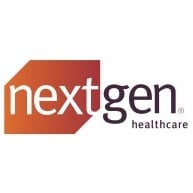The Role
The Machine Learning Operations Engineer will deploy, monitor, and optimize machine learning models in production, automate workflows, and collaborate with cross-functional teams.
Summary Generated by Built In
Job Description:
The Engineer I, Machine Learning Operations will support our AI/ML initiatives by streamlining the deployment, monitoring, and scaling of machine learning models in production environments. The incumbent will have a solid understanding of machine learning workflows, DevOps principles, and cloud technologies, with a focus on optimizing machine learning pipelines and ensuring reliable and efficient operations.- Implement and maintain CI/CD pipelines for deploying machine learning models to production environments.
- Ensure seamless integration of machine learning models into existing software systems.
- Design and manage scalable infrastructure for training, testing, and serving machine learning models.
- Automate data preprocessing, model training, and deployment workflows.
- Monitor the performance of deployed models and systems, identifying and resolving issues proactively.
- Optimize model inference latency, scalability, and resource utilization.
- Work closely with data scientists, software engineers, and product teams to understand requirements and deliver operational solutions.
- Collaborate with DevOps and cloud engineering teams to ensure infrastructure reliability and security.
- Maintain version control for datasets, models, and code.
- Implement best practices for data and model governance, ensuring compliance with organizational and regulatory requirements.
- Stay updated with the latest trends in MLOps tools, frameworks, and practices.
- Recommend and implement improvements to the MLOps processes and infrastructure.
- Perform other duties that support the overall objective of the position.
- Bachelor’s degree in Computer Science, Data Science, Engineering, or a related field.
- Or, any combination of education and experience which would provide the required qualifications for the position.
- 1-3 years of hands-on experience in MLOps, DevOps, or related roles.
- Experience with MLOps tools and platforms like MLflow, Kubeflow, or SageMaker.
- Experience with feature stores and model versioning systems.
- Experience in building CI/CD pipelines using tools like Jenkins, GitLab CI, or similar.
- Knowledge of: Proficiency in Python and familiarity with machine learning frameworks (e.g., TensorFlow, PyTorch, Scikit-learn). Strong understanding of containerization and orchestration tools (e.g., Docker, Kubernetes). Familiarity with distributed computing frameworks (e.g., Apache Spark). Knowledge of cloud platforms such as AWS, Azure, or Google Cloud. Solid understanding of model monitoring, logging, and debugging tools. Familiarity with database technologies and data pipelines (SQL, NoSQL, ETL/ELT processes).
- Skill in: Strong problem-solving skills and a detail-oriented mindset. Excellent communication and collaboration abilities.
- Ability to: Ability to have a clear view of complete systems and the ability to understand and work on different components as and when required.
NextGen Healthcare is an equal opportunity employer. We celebrate diversity and are committed to creating an inclusive environment for all employees.
Top Skills
Spark
AWS
Azure
Docker
Gitlab Ci
GCP
Jenkins
Kubeflow
Kubernetes
Mlflow
NoSQL
Python
PyTorch
Sagemaker
Scikit-Learn
SQL
TensorFlow
Am I A Good Fit?

Get Personalized Job Insights.
Our AI-powered fit analysis compares your resume with a job listing so you know if your skills & experience align.
Success! Refresh the page to see how your skills align with this role.
The Company
What We Do
NextGen Healthcare is on a relentless quest to improve the lives of those who practice medicine and those they care for. We provide tailored solutions to fit the precise needs of ambulatory practices, as they strive to reach the quadruple aim while navigating the journey of value-based care. The result? Healthier patients and happier providers.










